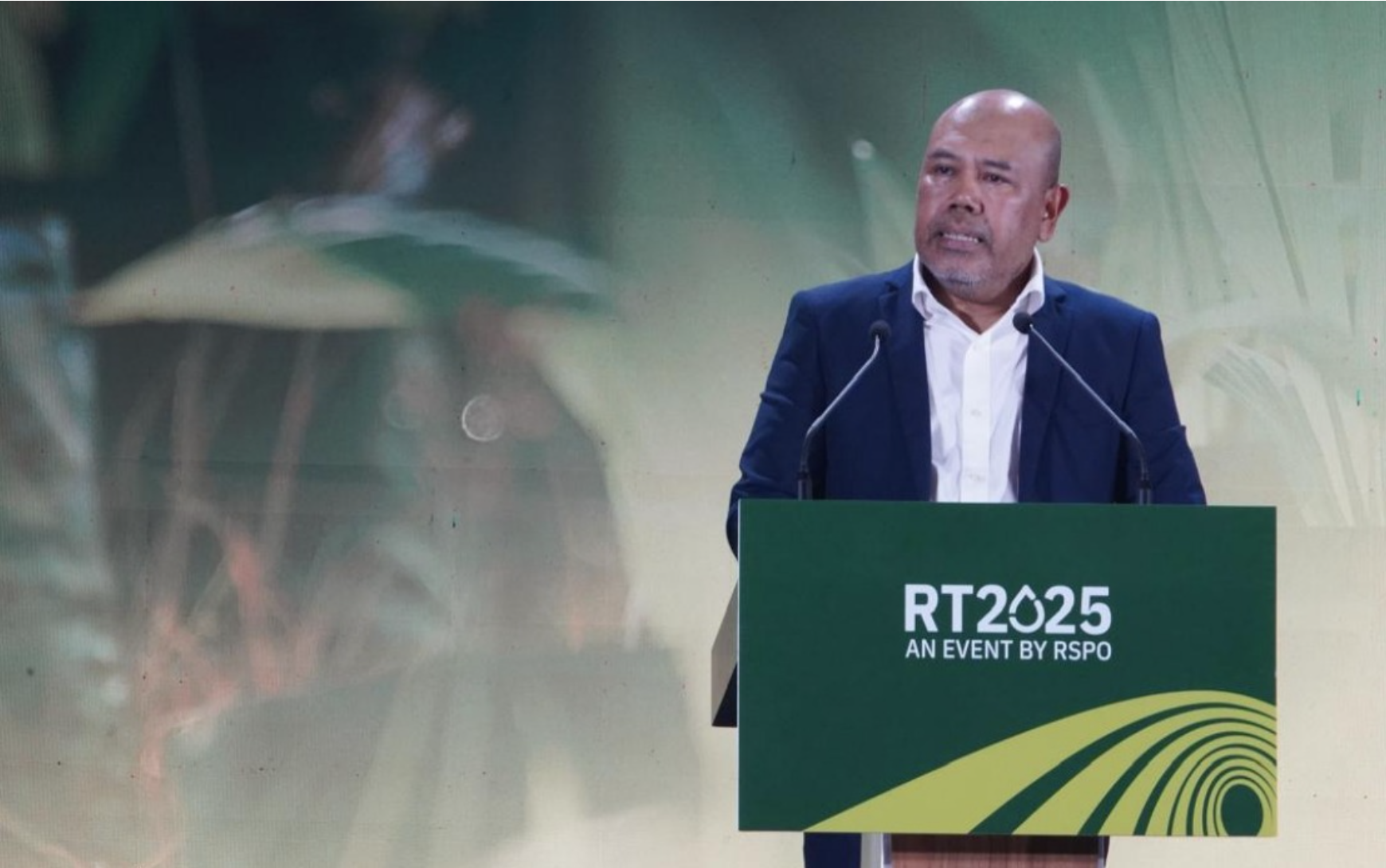
Speech by Datuk Mohamaa Helmy Othman Basha, Group Managing Director or SD Guthrie and chairman of the Malaysial alm Oil Board MPOB), at RSPO RT2025, highlighting the theme ‘Partners in Action’ and the collective responsibility to buil the future of sustainable palm oil.
KUALA LUMPUR, Nov 3 (Bernama) — The hypocrisy surrounding global environmental policies must stop, said Malaysian Palm Oil Board (MPOB) chairman Datuk Mohamad Helmy Othman Basha, who called out the continued double standards against palm oil.
He said that over the past three decades, palm oil has been unfairly portrayed as an environmental villain, while fossil fuel producers – whose emissions are the largest direct cause of climate change – have largely escaped equivalent moral outrage.
“When fossil fuel use is often excused in the name of ‘energy security’, sustainable palm oil is banned in the name of ‘deforestation’. Because of these double standards that developing countries cannot afford to fight against, a new challenge is emerging — one that affects global availability itself,” he said in his speech at the Roundtable on Sustainable Palm Oil (RSPO) 2025 conference here today.
Mohamad Helmy, who is also the SD Guthrie Bhd’s group managing director, said that the persistent negativity towards palm oil has led to declining global availability, as producing countries such as Indonesia increasingly turn inward to meet domestic demands.
“Indonesia is already running B40 biodiesel, with B50 on the horizon and B60 under discussion, while Malaysia is advancing toward B30. Each increase in blending means more palm oil is used domestically for energy – and less is available for export.
“While the global North debates whether to ‘phase out’ palm oil, the two biggest producers are blending it for fuel. The world is losing access to the most efficient, most productive, and most sustainably produced vegetable oil,” he said.
Helmy said that every government acts in its own national interest, and developing nations like Indonesia and Malaysia have the right to do the same.
“If the world continues to reject palm oil with one-sided, myopic and colonial thinking, it will pay the price – in food security, affordability, and even in achieving climate targets,” he said.
Citing data from the World Resources Institute and Global Forest Watch, he said both Malaysia and Indonesia have made significant progress in reducing deforestation, with Malaysia recording a more than 60 per cent decline since its peak and Indonesia consistently achieving its lowest rates on record, while both nations maintain over 50 per cent forest cover – a figure higher than many developed countries.
He criticised the European Union Deforestation Regulation (EUDR), saying Malaysia’s “standard risk” rating was unjustified despite its strong record, and described the imposition of stricter standards on developing countries as a form of “economic apartheid” that fails to consider land use and deforestation alongside economic needs.
“The only equitable and ethical solution for poorer countries is to allow them to use their natural resources. And this is going to be unpopular, but hear me out — they should be allowed to lose some of their forest to stimulate economic activity for their people,” he added.
Source: BERNAMA





